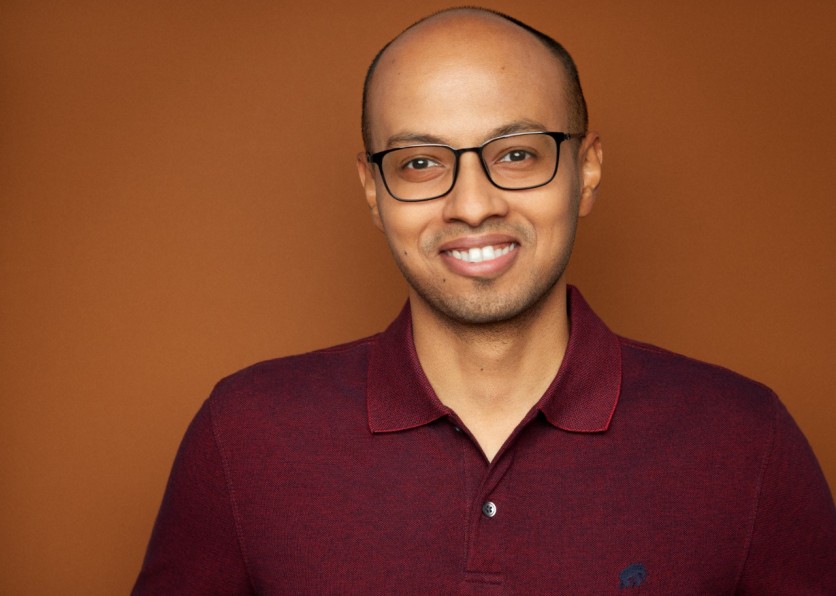
If you have made an online purchase for clothing, furniture, or electronics recently, chances are, you've seen the option to Buy Now and Pay Later in installments. Buy Now Pay Later (BNPL) was a breakout star in the payments world in 2020. More than a third of US consumers had used a BNPL offering by July 2020. The COVID-19 pandemic has propelled this demand further, and Buy Now Pay Later spending is expected to hit nearly a trillion dollars by 2026.
We sat down with Aveedibya (Avee) Dey, CTO and Co-Founder of Neon, to understand why there is accelerated adoption of buy now pay later products today. Whether this trend will continue or fade, and to hear about his journey building Neon-the first fintech startup providing buy now pay later for essential bill payments such as rent, utilities, and insurance.
Taking the leap - From a day job to building a BNPL startup
Born and raised in India, Avee completed his Bachelors in Engineering from the Indian Institute of Technology (IIT) and moved to the US in 2011 to pursue his Masters from Purdue University. Before joining Neon, Avee worked with two of the largest financial institutions in the US-Capital One and Discover-where he built critical functions for several lending products, such as credit cards and loans.
For the first two years in the US, Avee's only source of income was a stipend he received from his University, which was enough to get him through his college and make ends meet. After he graduated, he got married and started a family on a modest household income of $50,000. As an immigrant, who had just started building his credit history, he struggled to get his first credit card and car loan because he had a limited credit history. Living on a tight budget, he was stressed about his monthly bill payments and had to plan in advance for every expense. Over the next several years, as he worked with the top financial institutions in the US, he learned that he was not alone. Millions of Americans lacked access to credit and had racked up debt to cover their essential monthly expenses. Avee wanted to solve this problem of access to credit. For someone who was used to making data-driven decisions in his day job, the solution was finding new data sets and building the technology to capture the missing data. He had the right mix of expertise and motivation to think beyond the traditional frameworks and design the next generation of disruptive financial products.
"There is more data than ever now, and yet it was frustrating to see that most of it were going unutilized. Untapped data sources have the potential to unlock credit at fair interest rates or 0% interest for the underserved Americans, and I didn't have the patience to wait for a few more decades to get there. So, I decided it was time to jump ship and start from scratch," says Avee.
Having previously built credit risk and operations models for billion-dollar card and loan portfolios, Avee brought a unique perspective to the table on the current state of data and technology in the industry. As a statistical modeling expert, he knew the limitations of current credit risk models. But as a consumer who had been denied credit many times, he brought empathy required to build a product that encourages responsible financial behavior.
At Neon, Avee is leading the development of an industry-first underwriting model that goes beyond credit scores or bank data to provide a holistic view of consumer's ability to make on-time payments. By including new data that every American has but cannot use today, Neon is building a more inclusive credit decisioning system.
Is BNPL a trend or a fad?
According to Avee, market disruption occurs when technological innovation is coupled with macroeconomic factors that accelerate consumer adoption. For example, if you look at India, which was dominantly a cash-based economy, you would notice that most adults were skeptical about using credit cards. Despite advances made in recent years by the government and regulators to popularize cashless transactions, not much had changed. However, back in 2016, the Indian government's demonetization policy made it hard to access cash. As a result, people were pushed to adopt the next generation of digital fintech products. Mobile wallet startups such as Paytm and MobiKwik leapfrogged the incumbents and became household names in India.
A very similar thing is happening in the US right now, he says. Credit cards were first introduced in the 1950s and have since been the most popular method of making payments. There had only been incremental progress, if any, in the financial products consumers use until BNPL products hit the market. BNPL products were not entirely new in the US market-Affirm was founded in 2012, and Sezzle was founded in 2016. Still, it was the COVID-19 pandemic that provided macroeconomic tailwinds in the U.S. and drove the adoption of BNPL products by consumers. It won't be long before BNPL products become a household name in the US, he says.
"Although BNPL products helped users that were being denied credit by banks, they are only available for one-time or larger e-commerce purchases today. Neon takes the familiar concept of a 0% interest credit product and extends it to essential payments that users pay for a lifetime. But unlike other BNPL players that have light or no credit checks, we're building our technology that empowers consumers to plug in their data and use it to get qualified," says Avee.
![Apple Watch Series 10 [GPS 42mm]](https://d.techtimes.com/en/full/453899/apple-watch-series-10-gps-42mm.jpg?w=184&h=103&f=9fb3c2ea2db928c663d1d2eadbcb3e52)



